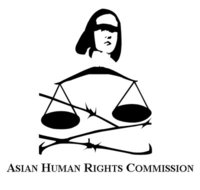
คณะกรรมาธิการสิทธิมนุษยชนแห่งเอเชียได้ออกแถลงการณ์ประนาม คสช ที่ยกเลิกหนังสือเดินทางของผู้ไม่เห็นด้วยต่อรัฐประหาร โดยมีการหยิบยกเอากรณี "ปวิน ชัชวาลพงศ์พันธ์" ขึ้นมาพูดว่าเป็นการละเมิดสิทธิความเป็นมนุษย์อย่างยิ่ง
The Asian Human Rights Commission is gravely concerned that during the past two weeks, the National Council for Peace and Order (NCPO), the ruling military junta, has revoked the passports of at least nine Thai citizens. According to reports from Prachatai and statements from the Ministry of Affairs, the passports of Junya Yimprasert, Somsak Jeamteerasakul, Pavin Chachavalpongpun, Jakrapob Penkair, Charupong Ruangsuwan, Sunai Julapongsathorn, Chatwadee Amornpat, Ekapop Luara, and Atthachai Anantamek, have been revoked following their decisions to not report to the junta’s summons. The revocation of passports operates as a coercive measure designed to ensure compliance with the junta’s orders and amounts to the restriction of freedom of movement of all of these persons, and in the cases of those who currently reside outside Thailand, making them into de facto stateless persons.
While this action has been justified by the junta and the Ministry of Foreign Affairs under the Ministry’s 2005 Regulations on the Issuance of Passports, the Asian Human Rights Commission’s assessment is that the revocation of these passports in the politicized and increasingly lawless atmosphere following the 22 May 2014 coup is a derogation of Thailand’s responsibilities as a state party to the International Covenant on Civil and Political Rights (ICCPR). In all of these cases, reports indicate that the Ministry of Foreign Affairs has relied on Section 23(2) in connection with Section 21(2) of the Ministry of Foreign Affairs’ 2005 Regulations on the Issuance of Passports, which permits the revocation of a passport once an arrest warrant has been issued. Section 23(2) stipulates that, “Officials may revoke and recall a passport when the below occurs: (2) The passport holder is an individual for whom the officials may not issue a passport in line with Section 21 (2), (3), and (4)” (unofficial AHRC translation). Section 21 (2) stipulates that, “Officials are able to deny or inhibit the request or amend a passport in the following cases: (2) When the requestor is someone who is undergoing punishment in a criminal case, or is on temporary release, or is a person who is a defendant in a criminal case in which an arrest warrant has been issued, that the court or the administrative officials or the police view that a passport should not be issued” (unofficial AHRC translation).................................
http://www.humanrights.asia/news/ahrc-news/AHRC-STM-135-2014


THAILAND: Revocation of passports by junta restricts freedom of movement .....
คณะกรรมาธิการสิทธิมนุษยชนแห่งเอเชียได้ออกแถลงการณ์ประนาม คสช ที่ยกเลิกหนังสือเดินทางของผู้ไม่เห็นด้วยต่อรัฐประหาร โดยมีการหยิบยกเอากรณี "ปวิน ชัชวาลพงศ์พันธ์" ขึ้นมาพูดว่าเป็นการละเมิดสิทธิความเป็นมนุษย์อย่างยิ่ง
The Asian Human Rights Commission is gravely concerned that during the past two weeks, the National Council for Peace and Order (NCPO), the ruling military junta, has revoked the passports of at least nine Thai citizens. According to reports from Prachatai and statements from the Ministry of Affairs, the passports of Junya Yimprasert, Somsak Jeamteerasakul, Pavin Chachavalpongpun, Jakrapob Penkair, Charupong Ruangsuwan, Sunai Julapongsathorn, Chatwadee Amornpat, Ekapop Luara, and Atthachai Anantamek, have been revoked following their decisions to not report to the junta’s summons. The revocation of passports operates as a coercive measure designed to ensure compliance with the junta’s orders and amounts to the restriction of freedom of movement of all of these persons, and in the cases of those who currently reside outside Thailand, making them into de facto stateless persons.
While this action has been justified by the junta and the Ministry of Foreign Affairs under the Ministry’s 2005 Regulations on the Issuance of Passports, the Asian Human Rights Commission’s assessment is that the revocation of these passports in the politicized and increasingly lawless atmosphere following the 22 May 2014 coup is a derogation of Thailand’s responsibilities as a state party to the International Covenant on Civil and Political Rights (ICCPR). In all of these cases, reports indicate that the Ministry of Foreign Affairs has relied on Section 23(2) in connection with Section 21(2) of the Ministry of Foreign Affairs’ 2005 Regulations on the Issuance of Passports, which permits the revocation of a passport once an arrest warrant has been issued. Section 23(2) stipulates that, “Officials may revoke and recall a passport when the below occurs: (2) The passport holder is an individual for whom the officials may not issue a passport in line with Section 21 (2), (3), and (4)” (unofficial AHRC translation). Section 21 (2) stipulates that, “Officials are able to deny or inhibit the request or amend a passport in the following cases: (2) When the requestor is someone who is undergoing punishment in a criminal case, or is on temporary release, or is a person who is a defendant in a criminal case in which an arrest warrant has been issued, that the court or the administrative officials or the police view that a passport should not be issued” (unofficial AHRC translation).................................
http://www.humanrights.asia/news/ahrc-news/AHRC-STM-135-2014